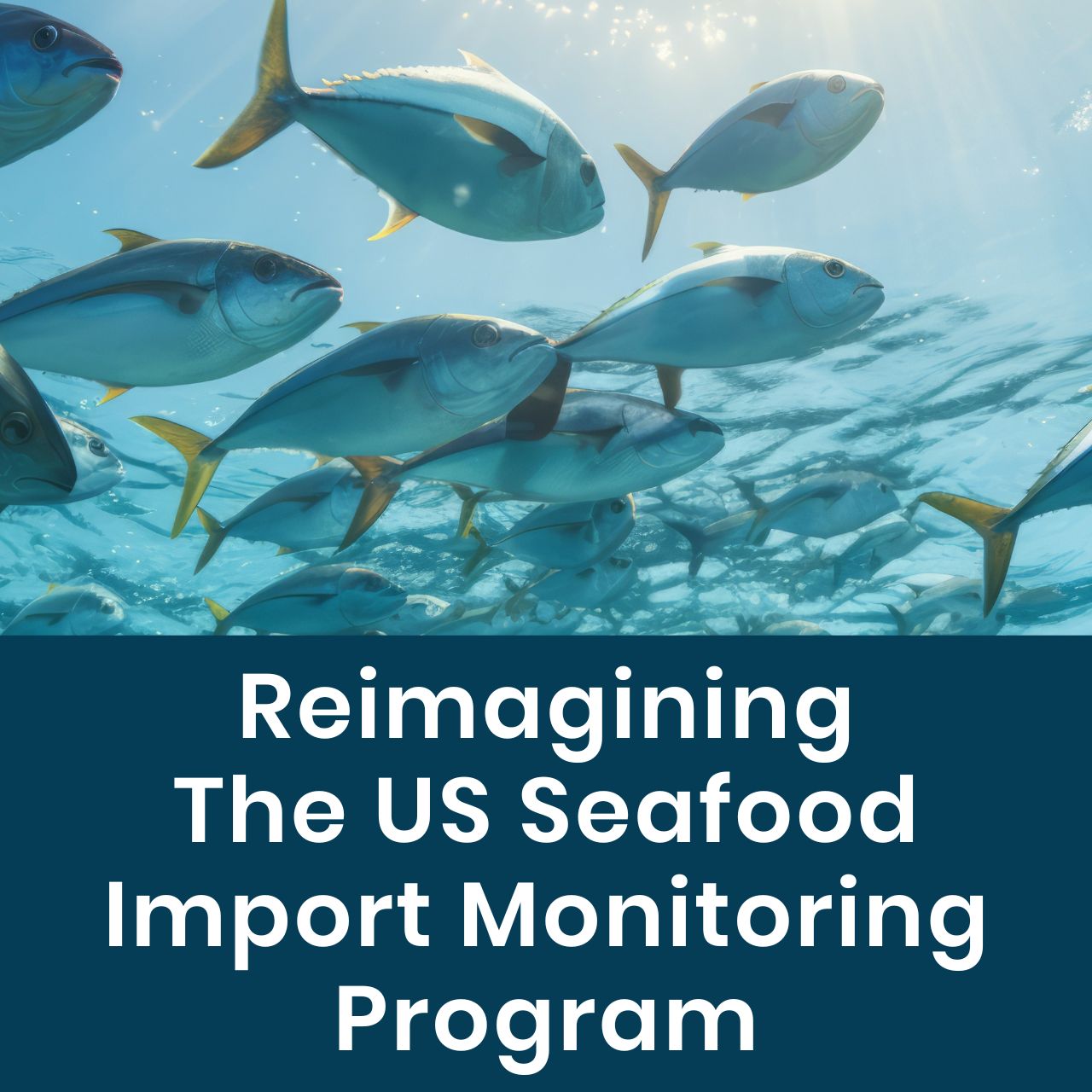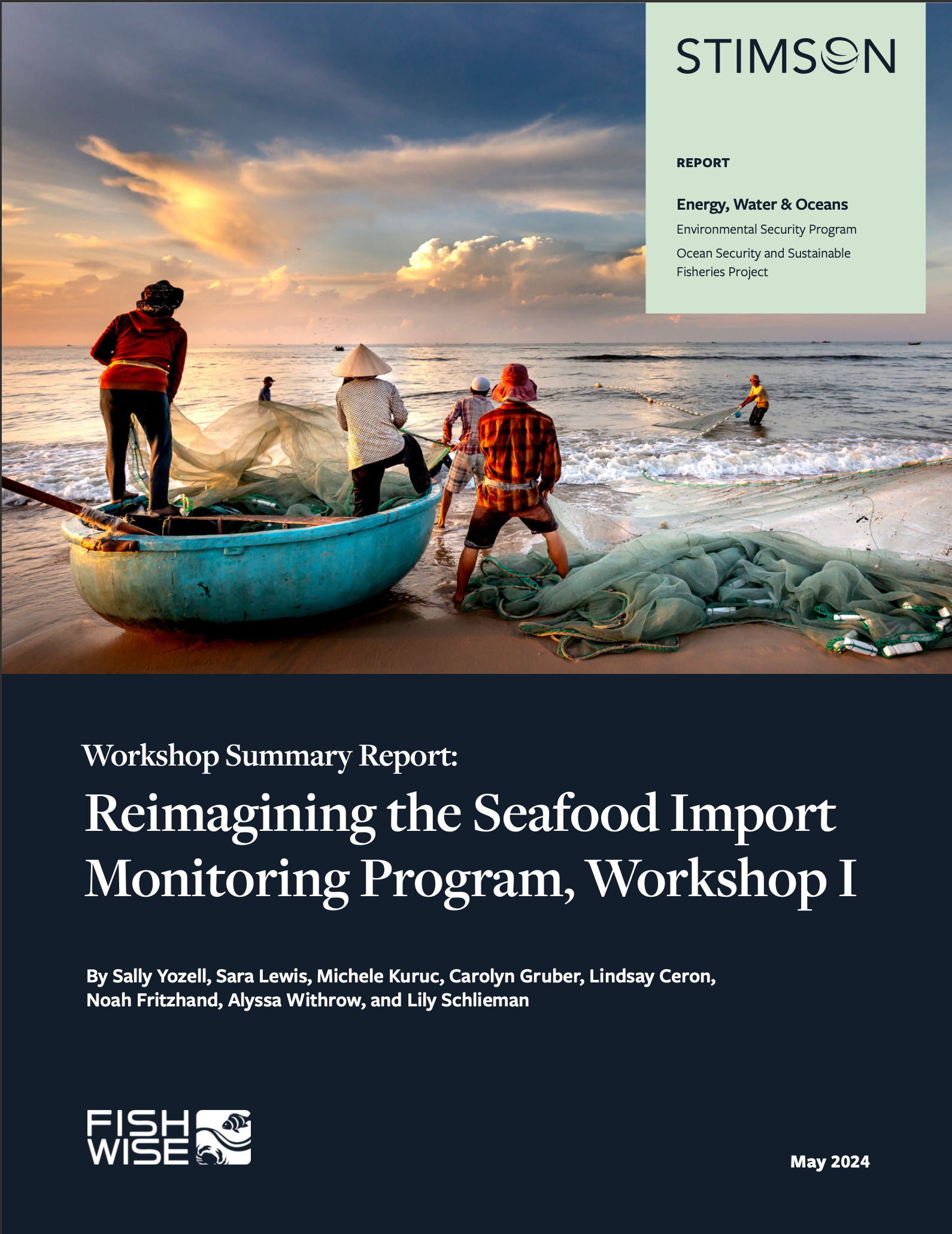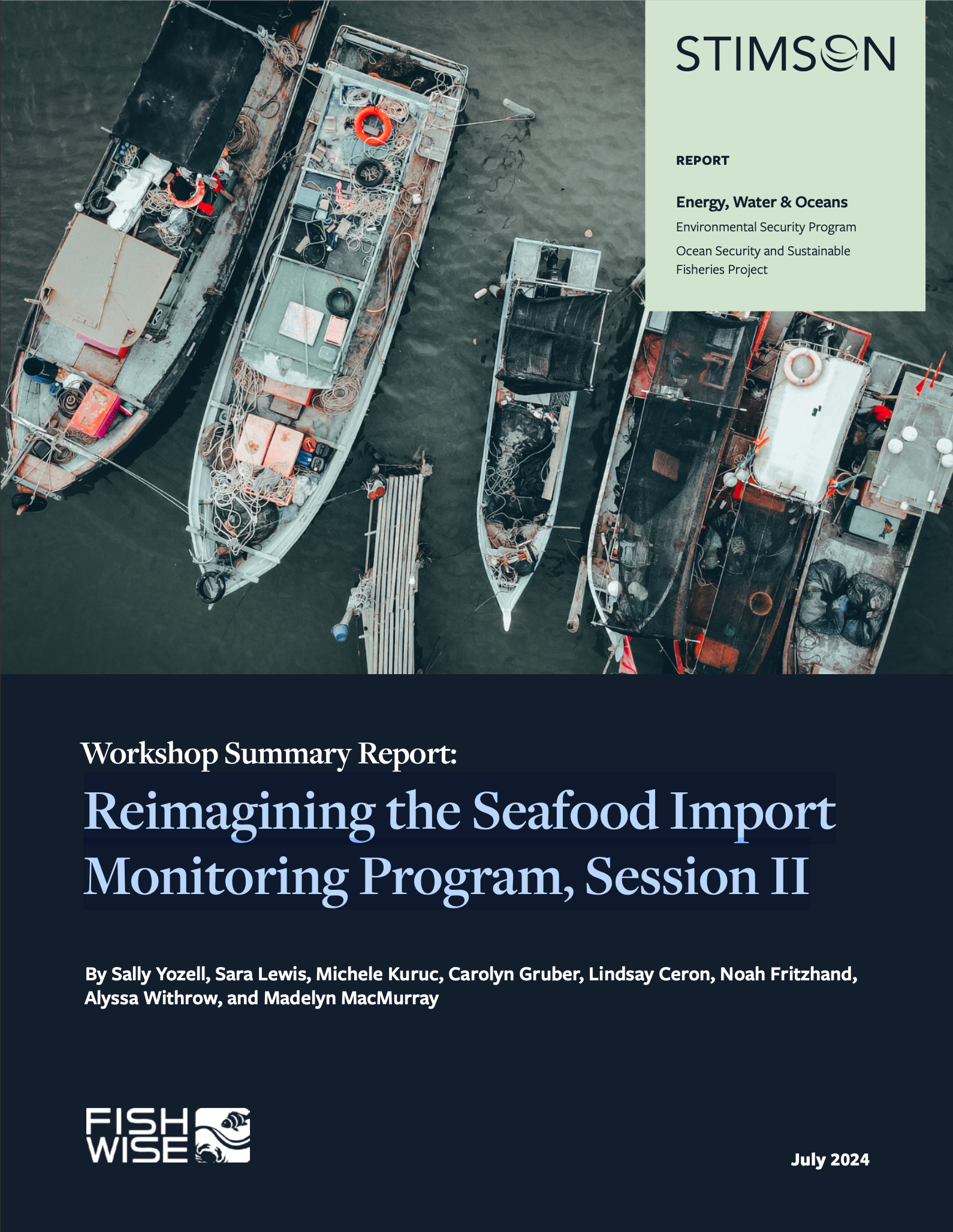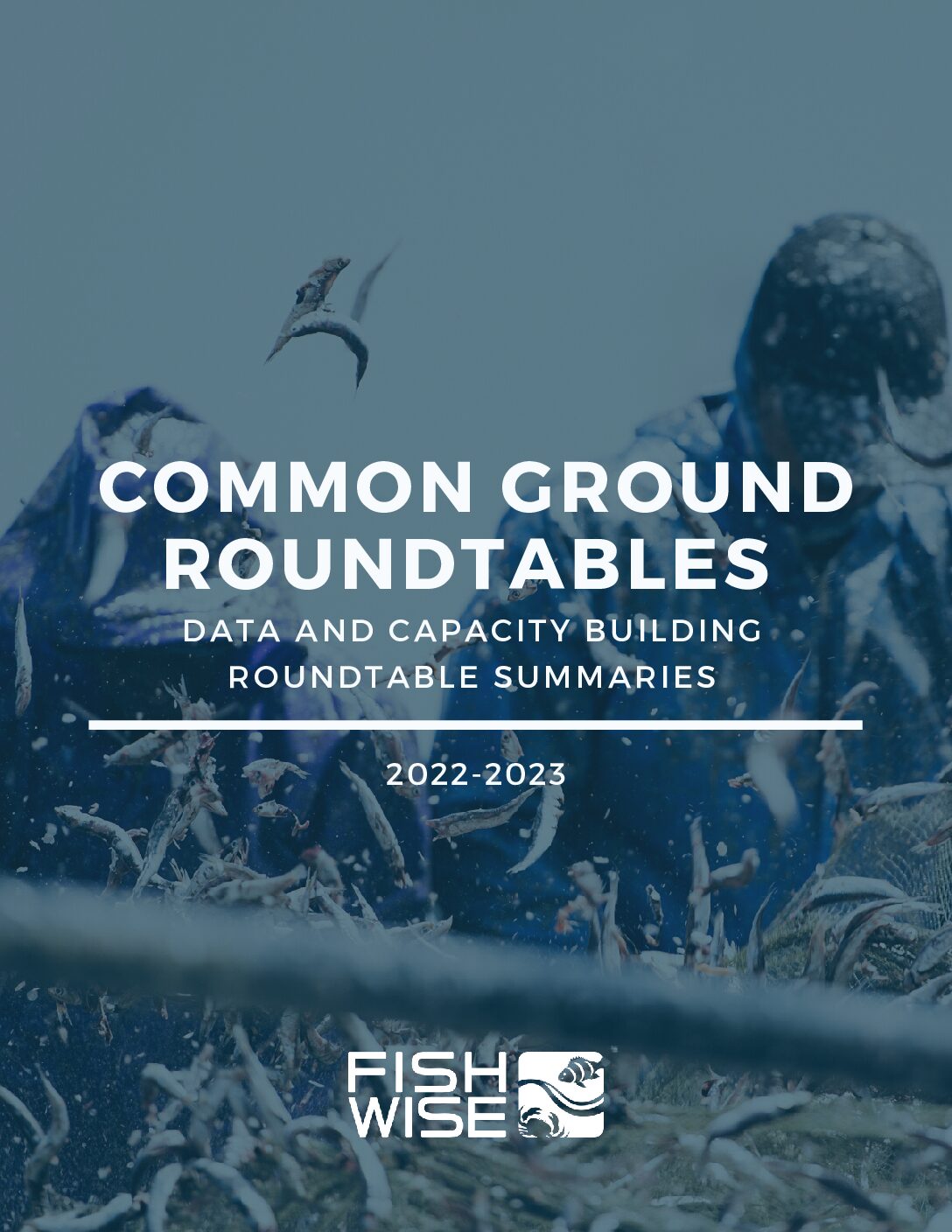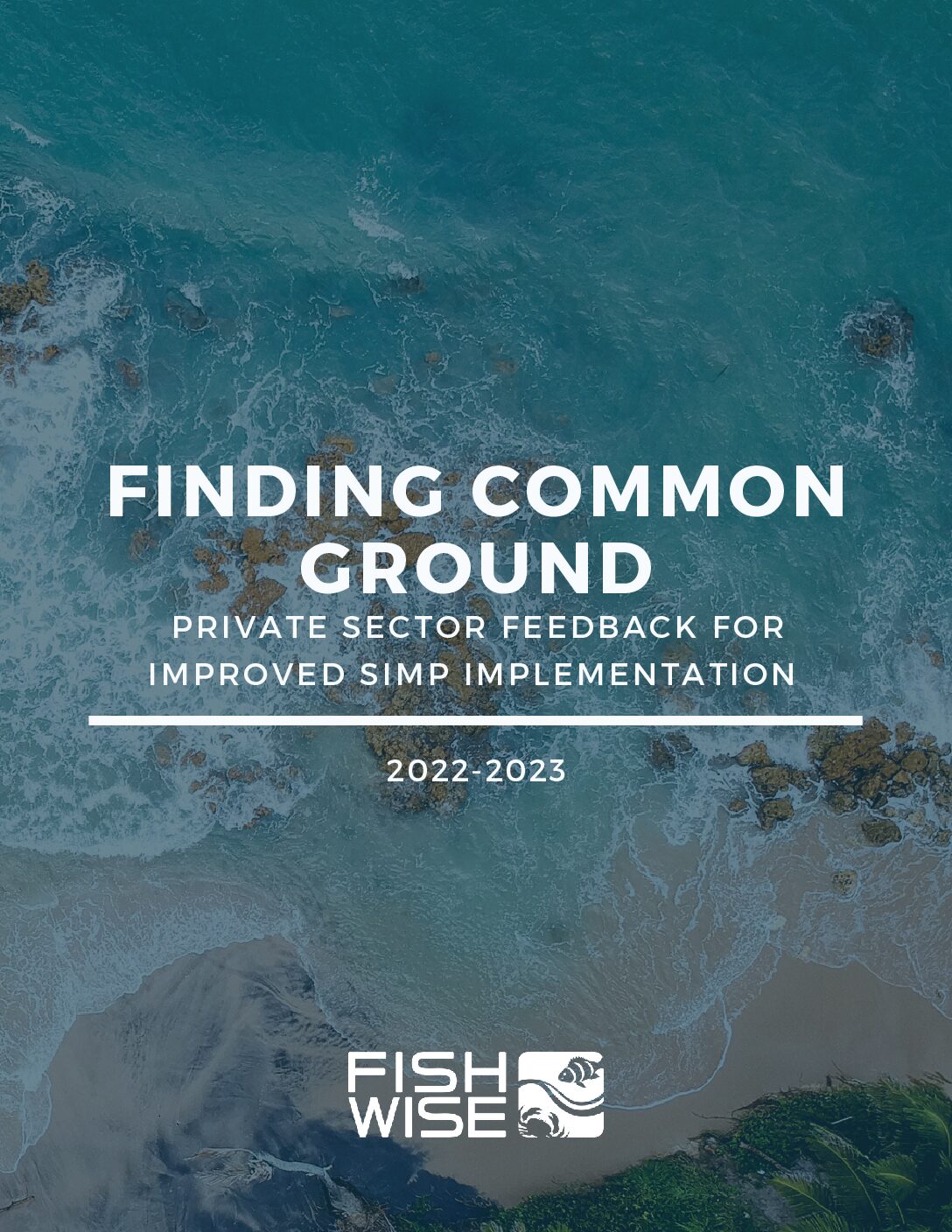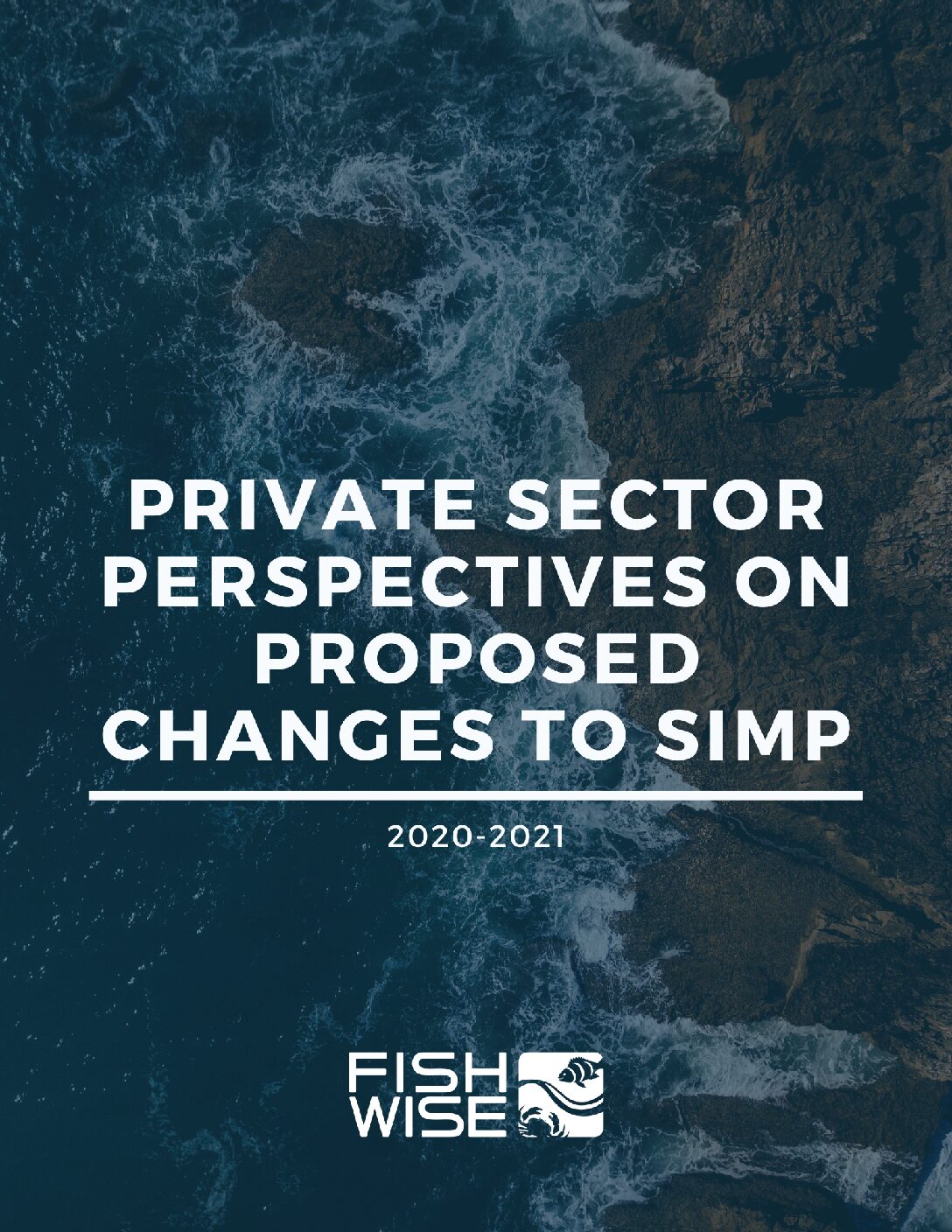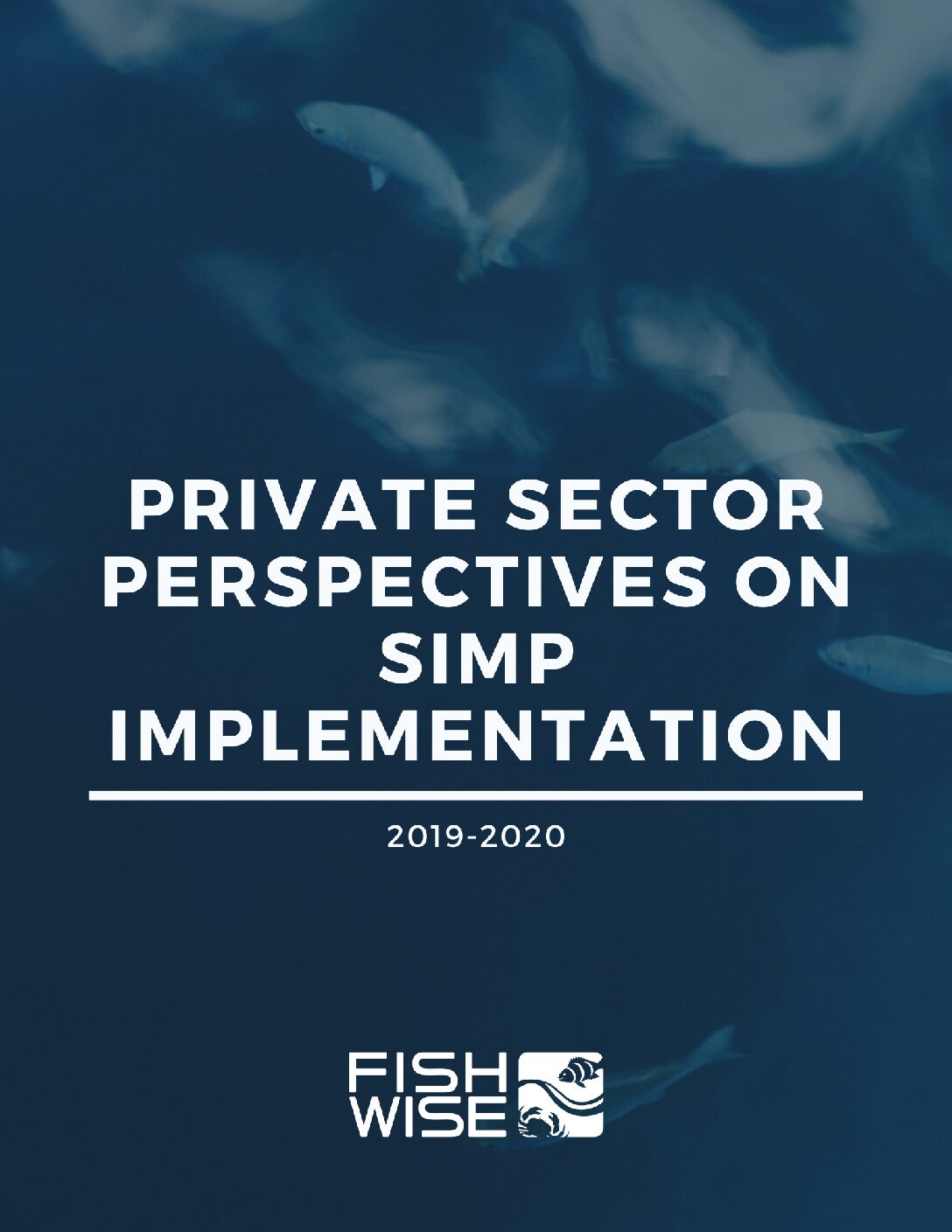Our Advocacy Work
FishWise believes that robust seafood regulations are essential to preserving our oceans and supporting the communities that rely on them. Raising the legislative bar and setting new norms are key to achieving long-term sustainability, and seafood companies play a pivotal role in this effort.
The seafood industry can act as a powerful catalyst for policy change and FishWise recognizes the importance of incorporating industry perspectives into the regulatory process. By sharing their in-depth knowledge of supply chain issues and operations, seafood companies can support the development and successful implementation of ambitious and achievable fisheries and trade policies.
We are committed to bringing diverse voices to the table and finding common ground. By engaging a wide range of stakeholders, we ensure that all perspectives are considered. This inclusive approach fosters collaboration and innovation, driving progress toward sustainable seafood practices.
Our Latest Work
REIMAGINING THE SEAFOOD IMPORT MONITORING PROGRAM: WORKSHOP SERIES HIGHLIGHTS
To support NOAA Fisheries’ efforts in reviewing the Seafood Import Monitoring Program (SIMP), the Stimson Center and FishWise launched the “Reimagining SIMP” workshop series, inviting NGOs, industry, customs brokers, and government agencies to discuss its future.
Examples of FishWise's Past Advocacy Engagement
FishWise comments on the U.S. National Action Plan (NAP) on Responsible Business Conduct. Comments called for CBP to close existing gaps in supply chain data to support and strengthen enforcement of Section 307 of the Tariff Act and the Uyghur Forced Labor Prevention Act (UFLPA).
Major tuna processors Bolton Group, BumbleBee, and Tri-Marine are joined by seafood industry groups Fedepesca, SEA Alliance, Hong Kong Sustainable Seafood Coalition and Fishing Industry Association, and NGOs concerned with fisher safety in a call to create a mechanism that will record and reduce fisher mortality.
FishWise submitted comments to NOAA Fisheries in response to the agency’s proposed rule to add species or groups of species to the Seafood Import Monitoring Program (SIMP). Comments called for issuing a revised rulemaking that comprehensively addresses the objectives of the National Security Memorandum (NSM-11), integrates the necessary modifications to SIMP outlined in the National Defense Authorization Act and includes greater transparency around the criteria and process for determining species inclusion and exclusion from the program.
FishWise participated in a tri-market effort – across the EU, U.S., and Japanese IUU Fishing Coalitions – calling for an increase in international cooperation to combat IUU fishing and forced labor in seafood supply chains and ensure the adoption, implementation, and promotion of effective tools to address these challenges.
Annually: ICCAT letter, IATTC letter, WCPFC letter
FishWise regularly participates in joint NGO calls of RFMOs to adopt and implement comprehensive precautionary management measures for the effective long-term management of tuna fisheries.
Joint NGO letter calling on President Biden to urge the prompt implementation of the National Security Memorandum on Combating Illegal, Unreported, and Unregulated Fishing and Associated Labor Abuses (NSM-11), which is critical for U.S. economic competitiveness, national security, fisheries sustainability, and the livelihoods and human rights of fishers around the world.
Current Advocacy Initiatives
Seafood Import Monitoring Program (SIMP)
The U.S. National Oceanic and Atmospheric Administration (NOAA) Fisheries’ Seafood Import Monitoring Program (SIMP) establishes reporting and recordkeeping requirements for imports of 13 seafood species groups to prevent seafood fraud and illegal, unreported, and unregulated (IUU) seafood from entering U.S. commerce. SIMP is NOAA Fisheries’ largest and newest import control program, covering nearly half of the seafood imported into the U.S. FishWise regularly engages a wide range of stakeholders, including seafood companies, government agencies, labor and environmental NGOs, fisheries associations, fisheries consultants, customs brokers, and academia, to understand their diverse perspectives and identify areas of common ground for strengthened implementation and enforcement of the program.
Our Work:
Since 2018, FishWise has gathered feedback from a diverse set of stakeholders, ranging from international government agencies to domestic seafood companies. This effort has led to key recommendations for improving SIMP implementation. Our “Common Ground” series has produced research showing topical areas of alignment between the seafood industry and NGOs, underscoring the industry’s potential as a catalyst for change.
Building on this work, the “Reimagining SIMP” workshop series, co-hosted with the Stimson Center, has furthered these efforts by providing a platform for industry, government, and NGOs to discuss challenges, share solutions, and drive regulatory improvements. These collaborative initiatives are crucial in shaping SIMP’s future direction, ensuring its effectiveness and adaptability in combating IUU fishing and seafood fraud. Through these initiatives, FishWise continues to advocate for policies that promote sustainable seafood practices, protect marine ecosystems, and foster inclusive stakeholder engagement.
Food Traceability Final Rule (FSMA 204)
FishWise tracks the regulatory space for rulemaking that impacts seafood supply chain traceability and transparency within the U.S. The Food and Drug Administration’s (FDA) final rule on Requirements for Additional Traceability Records for Certain Foods (i.e., Food Traceability Final Rule), requires the collection of key data elements (KDEs) at critical tracking events (CTEs) along supply chains, including those of certain seafood products. In light of the forthcoming rule, the FDA published a proposed rule that was open for public comment in 2021. As a U.S.-based NGO, FishWise deemed it important to participate and submit a public comment because we know firsthand that the diversity of species, harvest methods, and global supply chains for seafood result in unique food safety risks and traceability challenges for these products. As federal agencies continue to leverage supply chain information, FishWise continues to advocate for both interagency cooperation and coordination and alignment and standardization of KDE formats and definitions to improve efficiency and cost-effectiveness of compliance.
NGO Tuna Forum
FishWise participates in the NGO Tuna Forum to drive meaningful and impactful change in global tuna fisheries. We do this by working collaboratively with other tuna-focused conservation NGOs to define the priorities where we believe a collective effort will have the greatest impact. Once defined, we bring aligned guidance on policies and supply chain improvements to our market partners for them to support. Our coordinated advocacy is directed towards tuna regional fisheries management organizations (RFMOs) and member countries to encourage action by RFMOs to address corresponding policies and improvements.
How You Can Get Involved
Leveraging consultation approaches rooted in social science, FishWise engages a wide base of stakeholders from workers to the private sector to government agencies. We identify and support private sector champions for the traceability and counter-IUU fishing work of partner NGOs and amplify their good work. In doing so, we not only advance FishWise’s mission of working towards holistic sustainability but identify and support others who also believe in this mission.
We invite you to partner with us to drive systemic change in the seafood industry:
- Government Agencies: Collaborate with us to develop and implement forward-thinking seafood policies that support responsible fisheries and promote fair labor practices
- Industry Professionals: Champion sustainable practices within your operations and supply chains, and share your insights to shape effective regulations
- Funders: Invest in our initiatives to amplify our impact, support research, and enable innovative solutions that foster a sustainable and equitable seafood industry
For more information on how FishWise’s advocactes or to get involved, please contact us.

